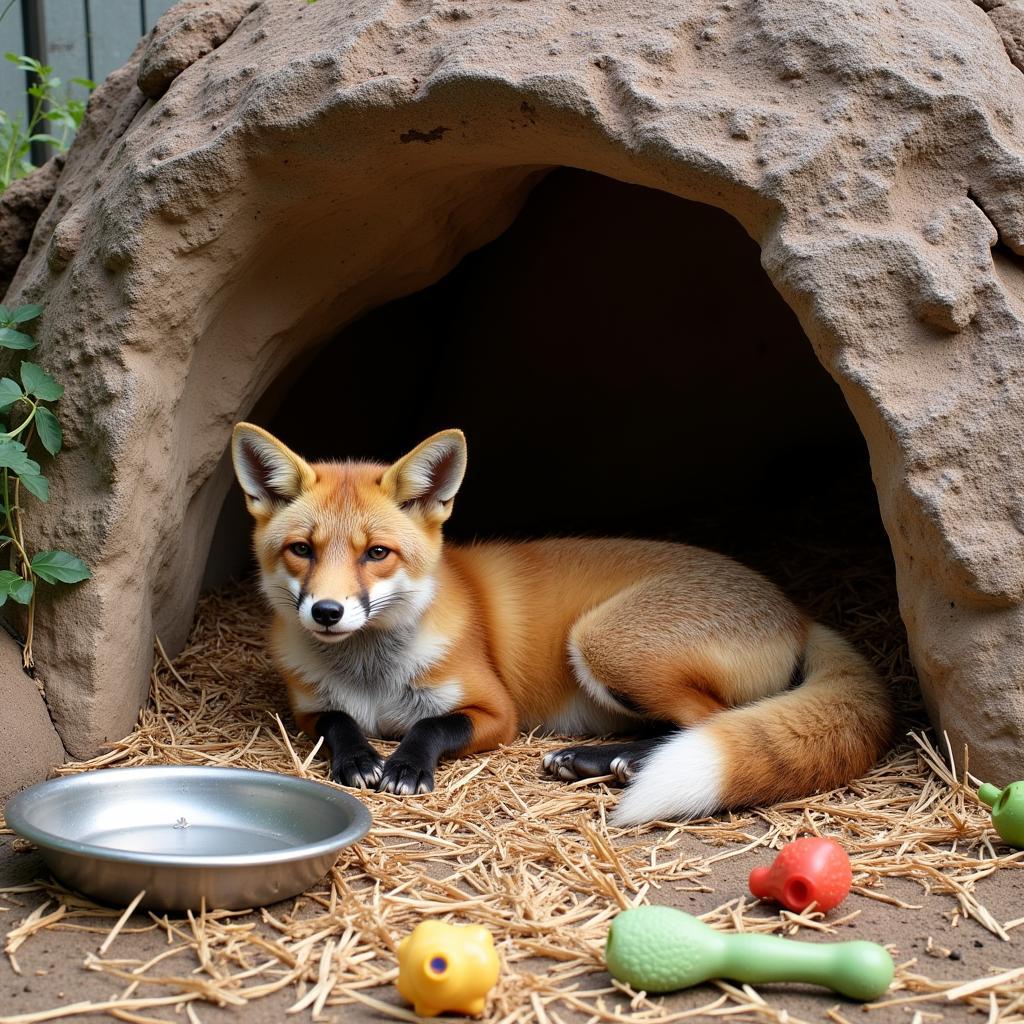Where to Buy a Domesticated Fox
December 7, 2024Finding a domesticated fox can be a complex endeavor. This guide explores the crucial factors to consider when searching for a domesticated fox, including ethical implications, legality, and the animal’s well-being. It’s essential to approach this process responsibly and with a deep understanding of the commitment involved.
Understanding the Challenges of Owning a Domesticated Fox
Before embarking on the search for a domesticated fox, it’s crucial to understand the significant challenges associated with owning these unique animals. Unlike domesticated dogs or cats, foxes require specialized care, diets, and environments. They also possess distinct behaviors that can be challenging for inexperienced owners. Researching these aspects thoroughly is paramount. Is your lifestyle compatible with a fox’s needs? Do you have the resources and knowledge to provide appropriate care? These questions must be honestly addressed.
Legal and Ethical Considerations
The legality of owning a domesticated fox varies widely depending on your location. Some regions strictly prohibit private ownership, while others may have specific licensing requirements. It’s imperative to thoroughly research and comply with all local, state, and national regulations before acquiring a fox. Ethical considerations are equally important. Is it ethically sound to keep a wild animal, even a domesticated one, in captivity? What impact does this have on the animal’s welfare and natural behaviors? These ethical dilemmas must be carefully considered.
Finding Reputable Breeders and Sources
If, after careful consideration, you decide to pursue owning a domesticated fox, finding a reputable breeder is crucial. A responsible breeder prioritizes the health and well-being of their animals, provides appropriate socialization, and adheres to ethical breeding practices. Research breeders thoroughly, ask questions about their practices, and request to visit their facilities.
Avoiding Unreliable Sources
Avoid purchasing foxes from unregulated sources, such as online marketplaces or individuals who cannot provide adequate documentation. These sources often prioritize profit over animal welfare and may offer foxes that are unhealthy, poorly socialized, or illegally obtained. Supporting such practices contributes to the unethical treatment of animals.
Preparing for a Domesticated Fox
Bringing a domesticated fox into your home requires significant preparation. Creating a suitable environment is essential for their physical and mental well-being. This involves providing a secure outdoor enclosure, enriching their space with stimulating activities, and ensuring they receive a balanced diet tailored to their specific needs.
Long-Term Commitment and Costs
Owning a domesticated fox is a substantial long-term commitment, both financially and emotionally. Veterinary care, specialized food, enclosure maintenance, and potential unexpected expenses can be costly. Furthermore, foxes require significant time and attention. Are you prepared to dedicate the necessary resources and emotional investment to provide a fulfilling life for a domesticated fox?
 Domesticated Fox Enclosure Setup
Domesticated Fox Enclosure Setup
Conclusion
Acquiring a domesticated fox is a complex process that requires careful consideration, thorough research, and a deep understanding of the responsibilities involved. Prioritize ethical considerations, legal compliance, and the animal’s well-being above all else. Remember, responsible pet ownership means ensuring the animal’s needs are met for its entire lifespan. If you are committed to this significant undertaking, finding a reputable breeder is paramount to providing a healthy and enriching life for your domesticated fox.
FAQ
- Are domesticated foxes good pets? Domesticated foxes can be challenging pets, requiring significant time, resources, and specialized care.
- How much does a domesticated fox cost? The cost of a domesticated fox can vary greatly depending on the breeder and location, but expect a significant investment.
- Is it legal to own a fox where I live? Fox ownership legality varies widely, so research local, state, and national regulations carefully.
- What do domesticated foxes eat? Domesticated foxes require a specialized diet that includes meat, fruits, vegetables, and specific nutrients.
- How long do domesticated foxes live? Domesticated foxes typically live between 10-15 years, requiring a long-term commitment from the owner.
- Where can I find more information on owning a domesticated fox? Consult with exotic animal veterinarians and experienced fox owners for valuable insights.
- What kind of enclosure does a domesticated fox need? Domesticated foxes require a secure and spacious outdoor enclosure with enrichment features.
Scenarios
- Scenario 1: You live in an apartment and want a fox. This is likely not suitable, as foxes require ample space and an outdoor enclosure.
- Scenario 2: You are allergic to dogs and cats and are considering a fox. Research fox allergens to determine if they are a suitable alternative.
- Scenario 3: You are fascinated by foxes and want to interact with them. Consider volunteering at a wildlife sanctuary or rescue center instead of owning one.
Further Reading
Explore our website for more articles on exotic pet ownership, responsible animal care, and legal regulations related to owning domesticated foxes.
Contact us for further assistance: Phone Number: 0915117113, Email: [email protected] Or visit us at: Cluster 3, Binh An Hamlet, Phu Thuong Commune, Viet Nam, Binh Phuoc 830000, Viet Nam. We have a 24/7 customer support team.